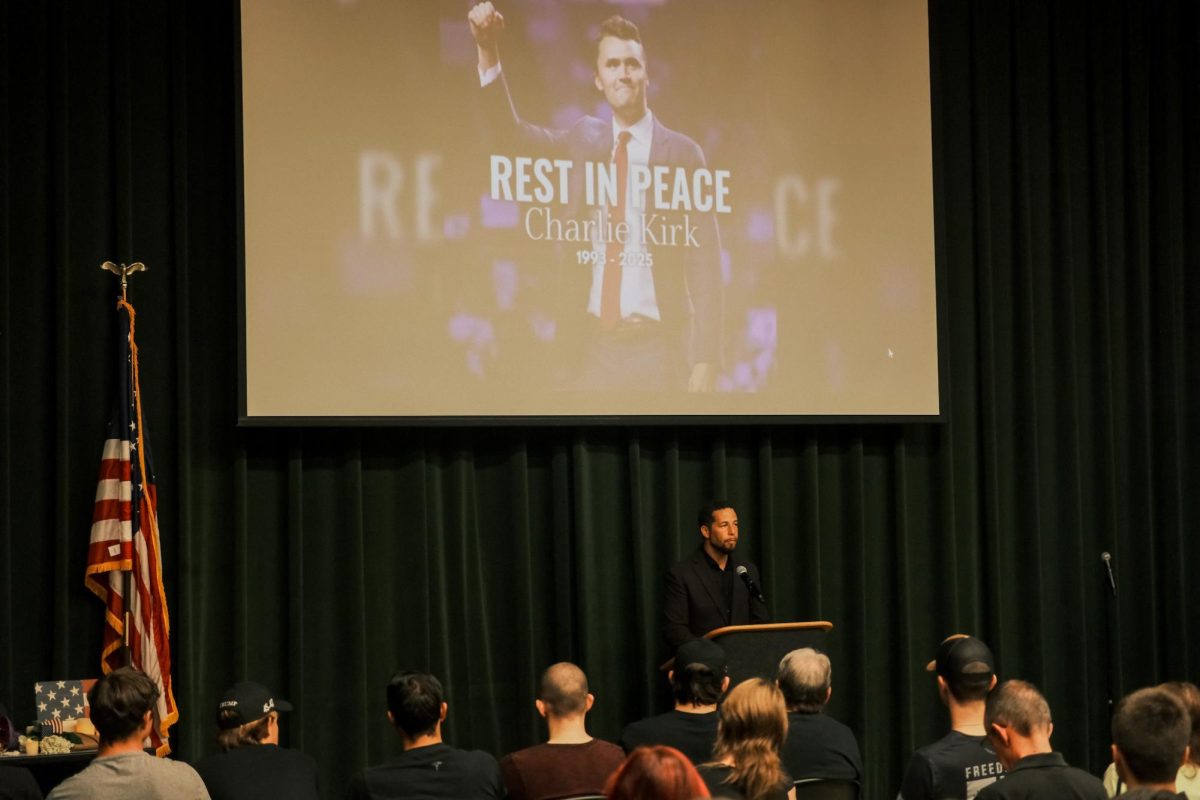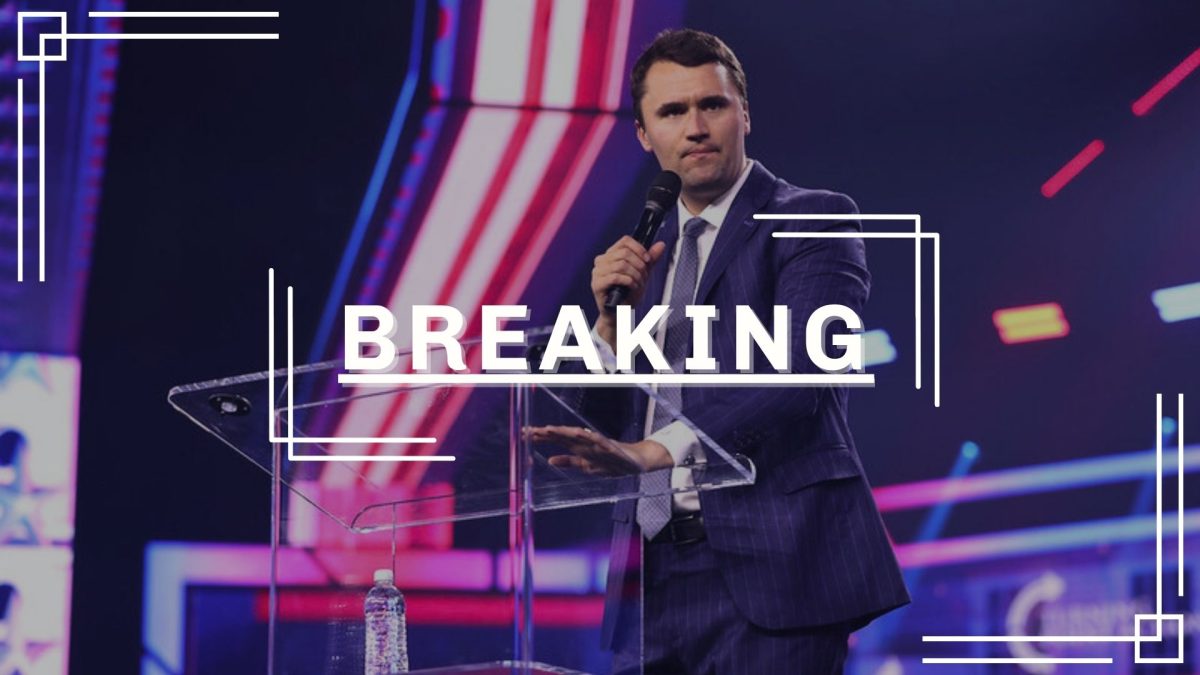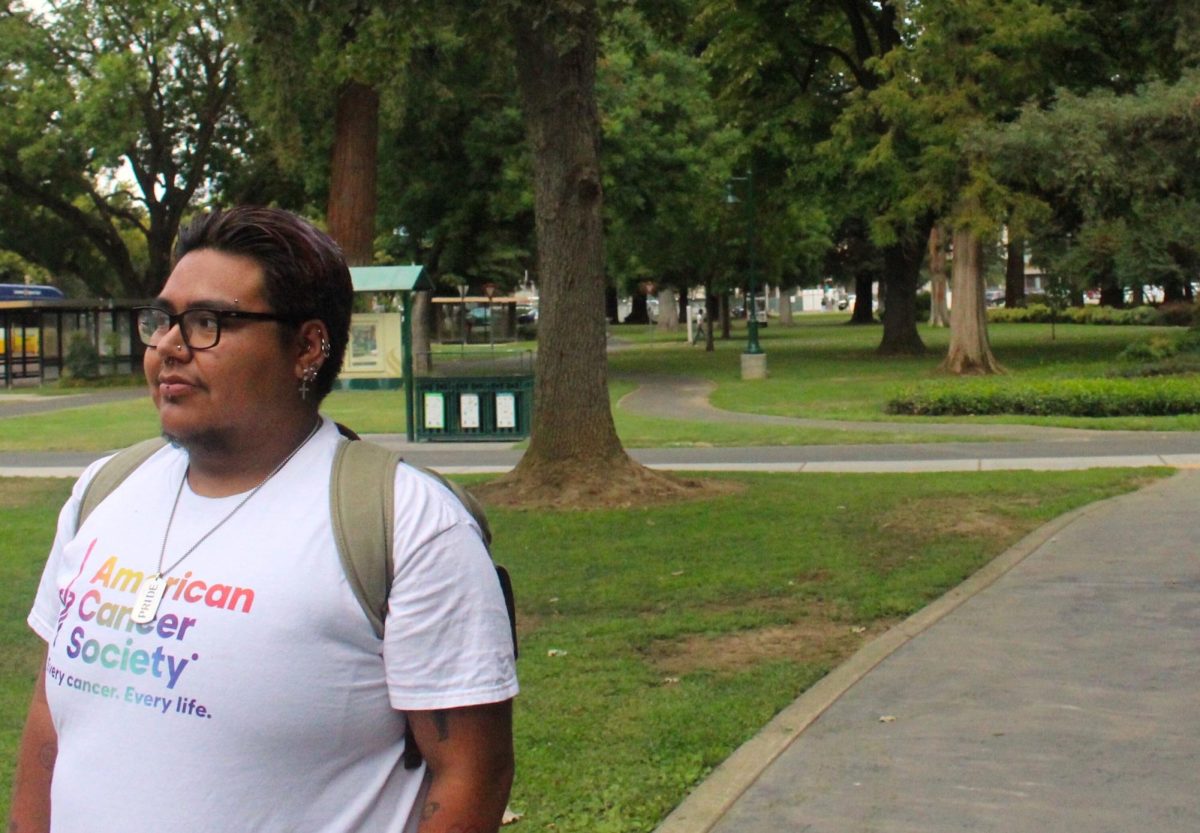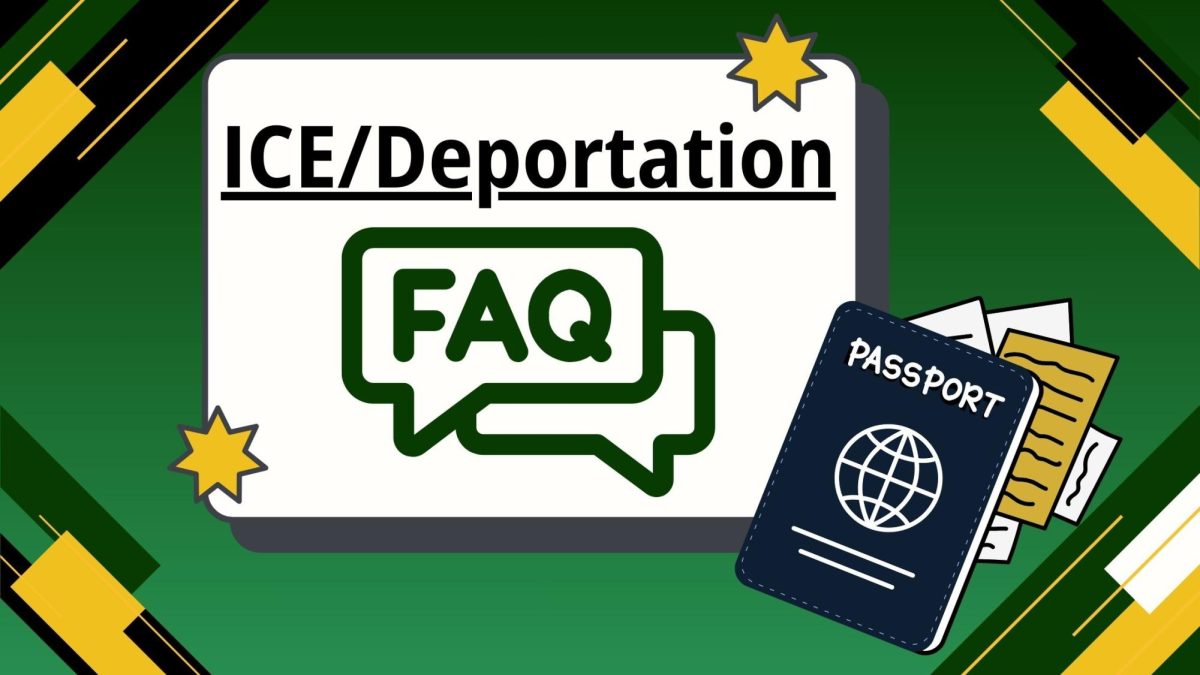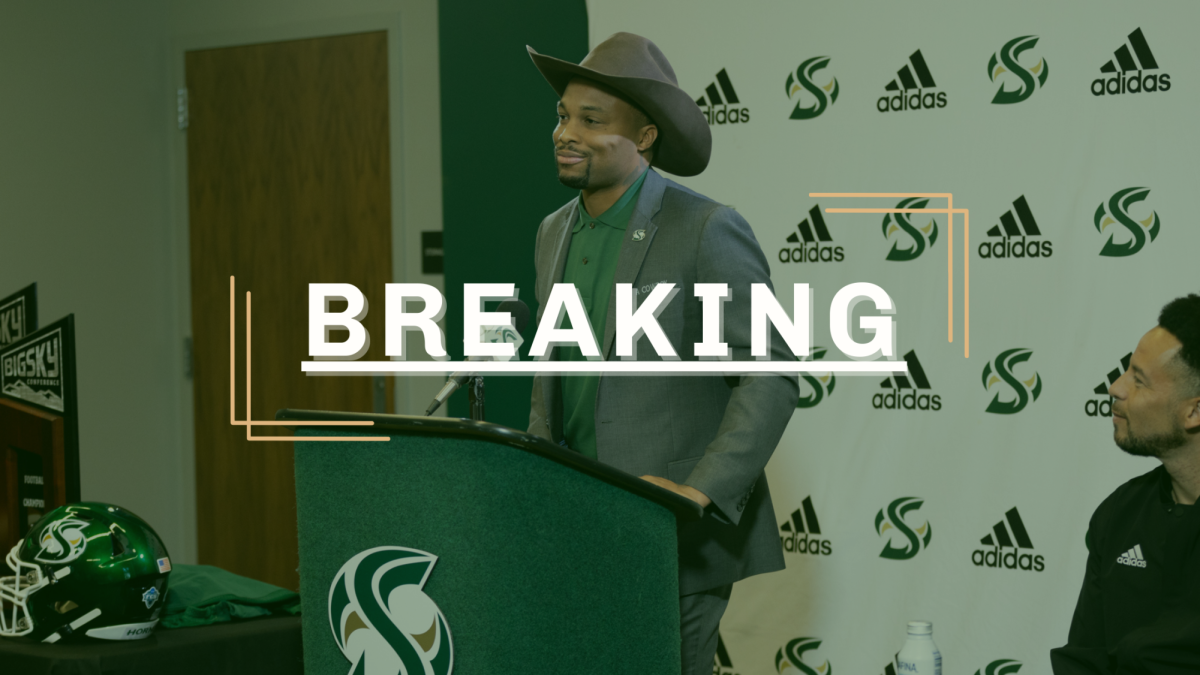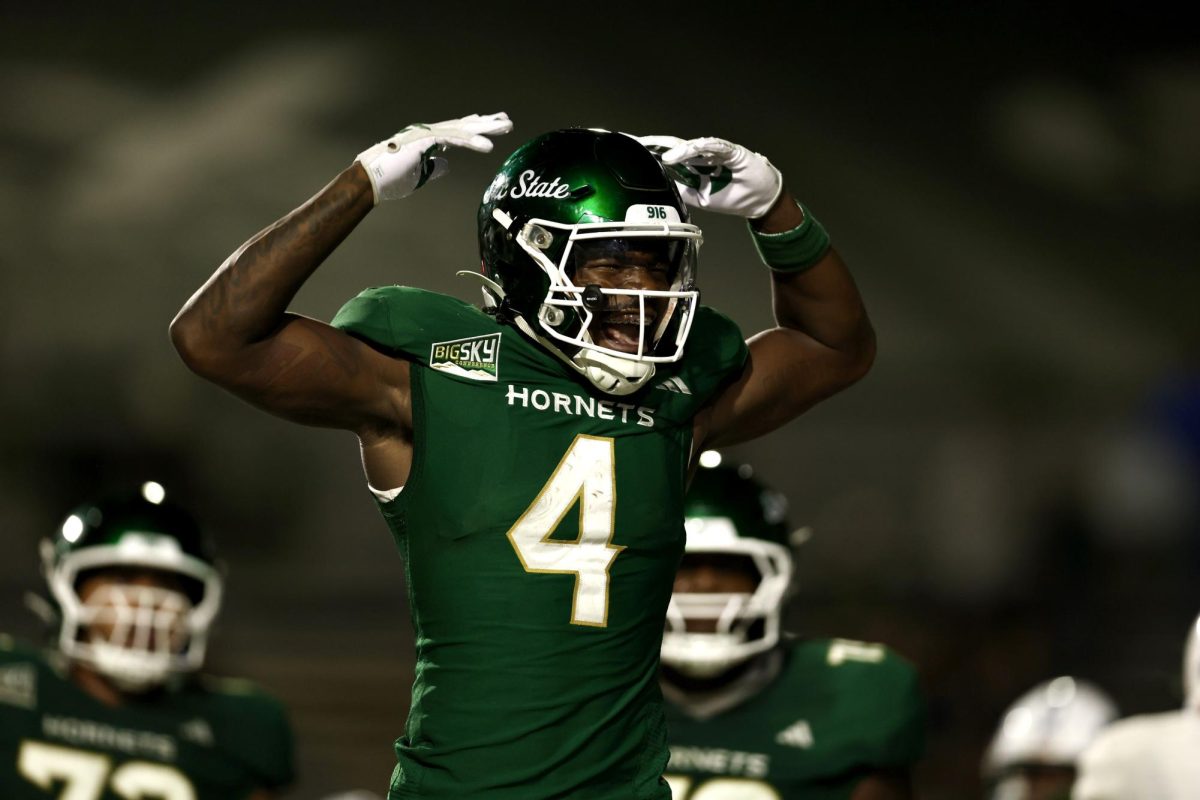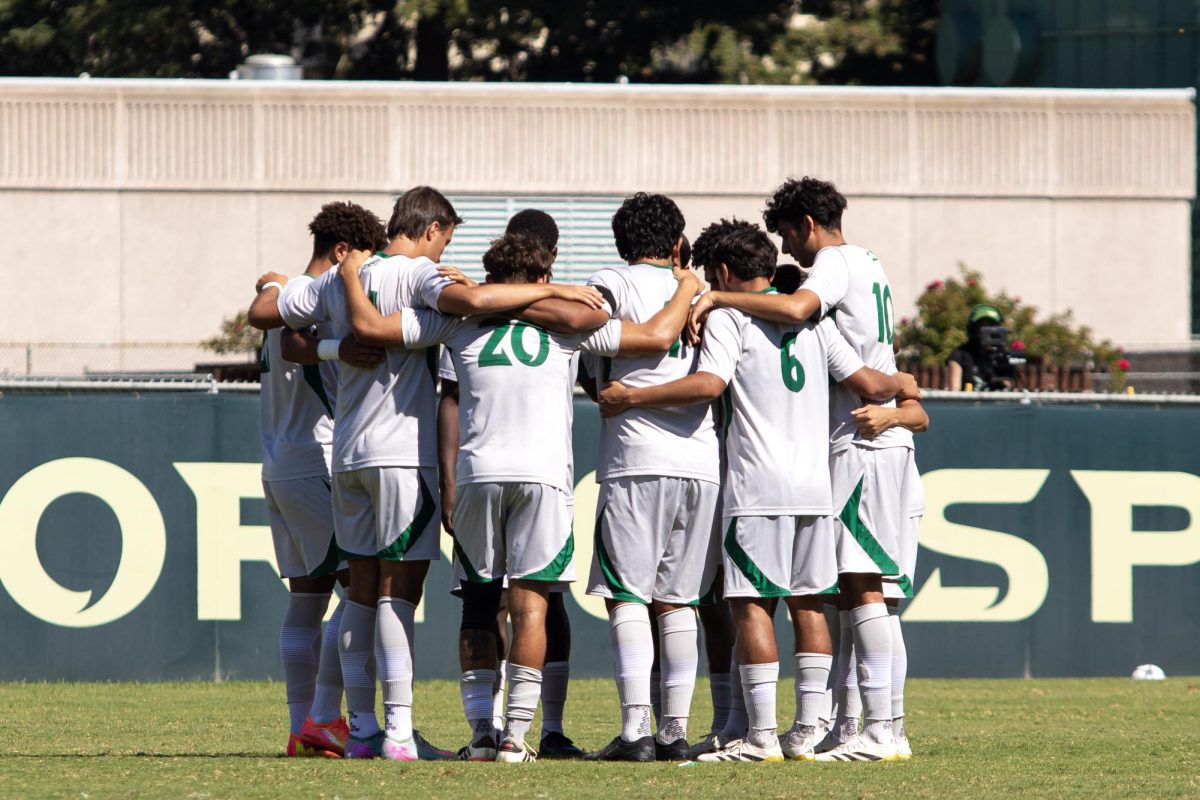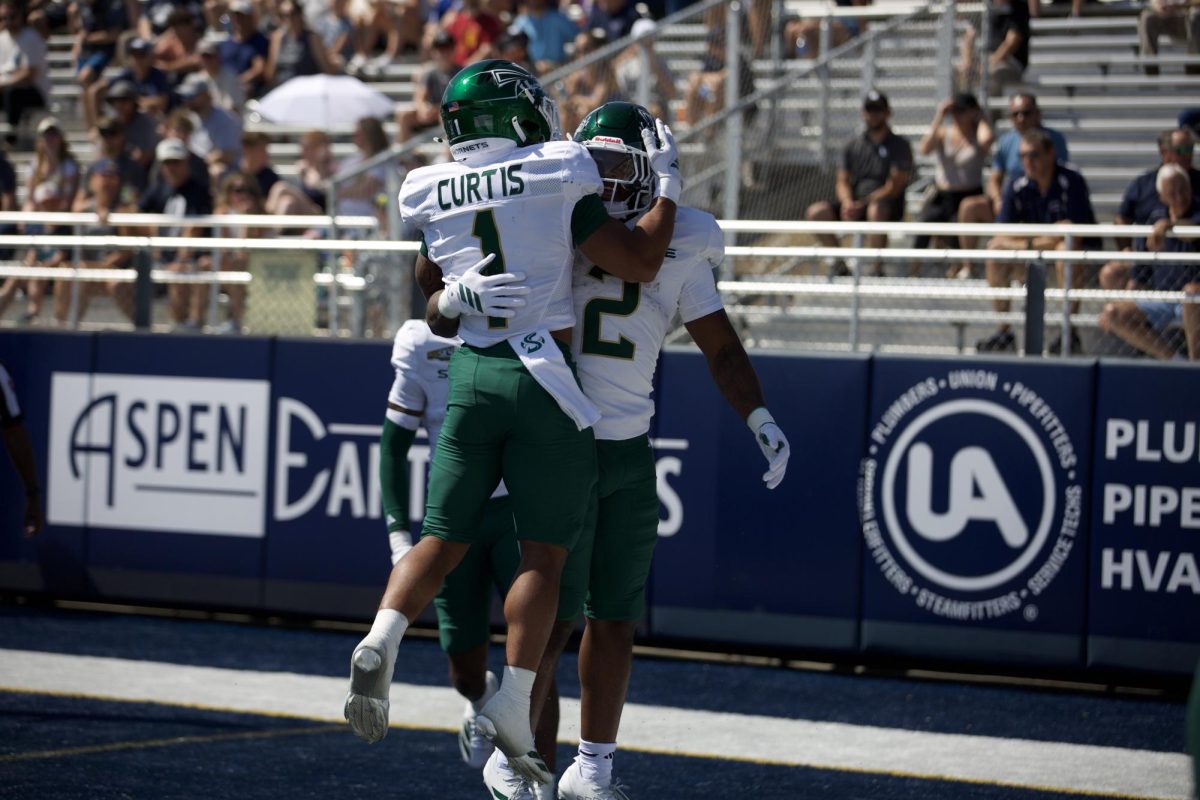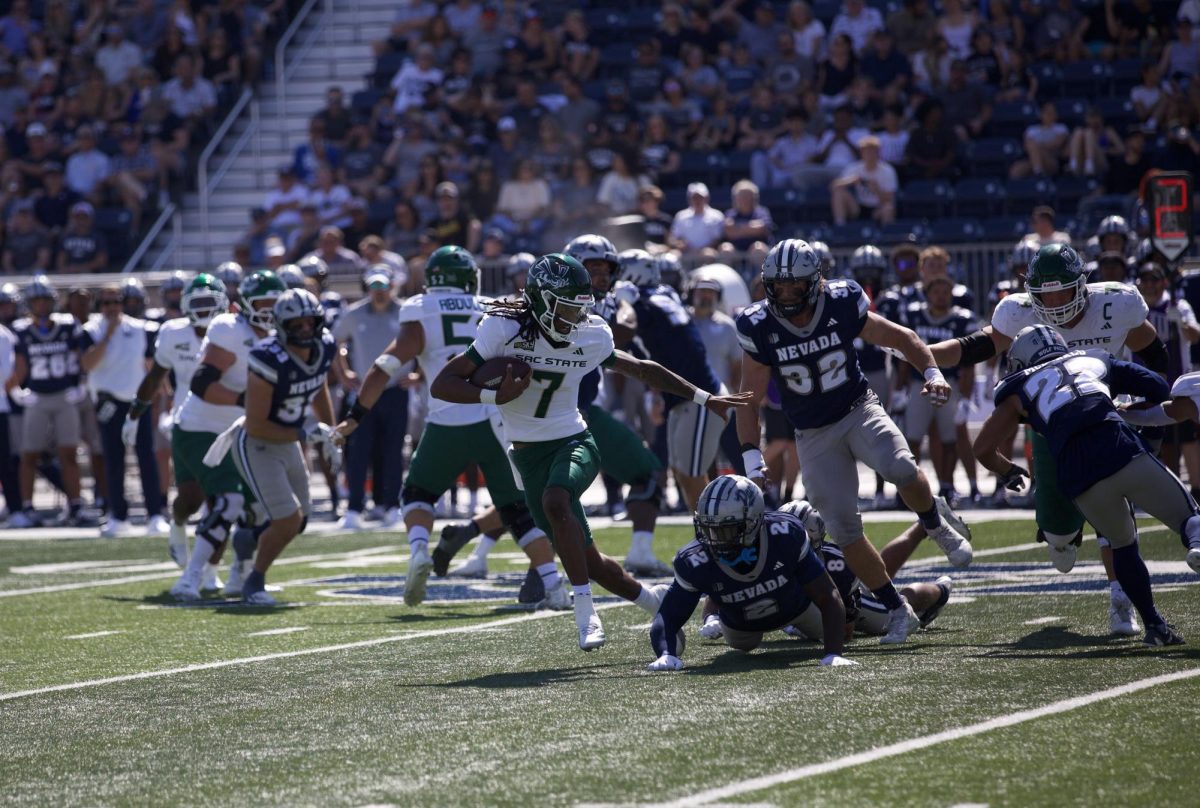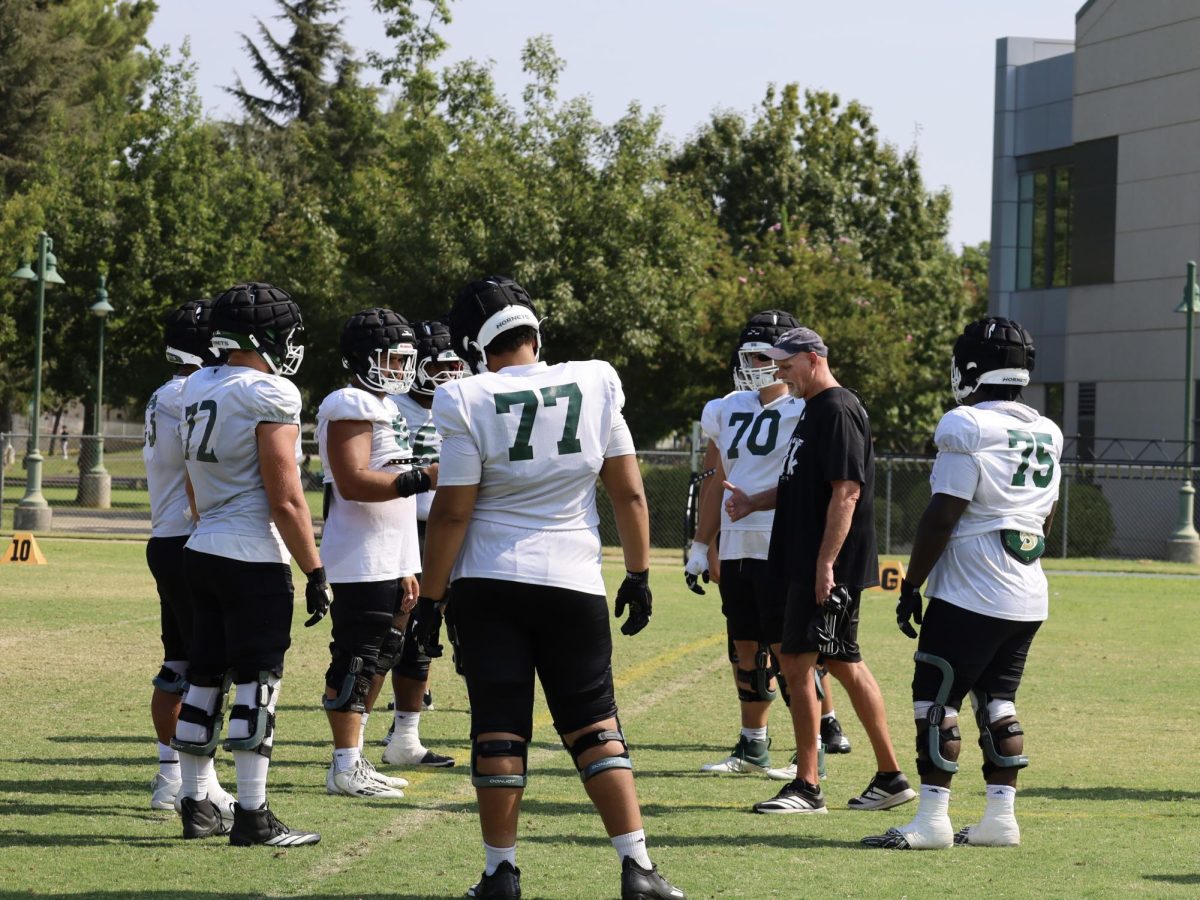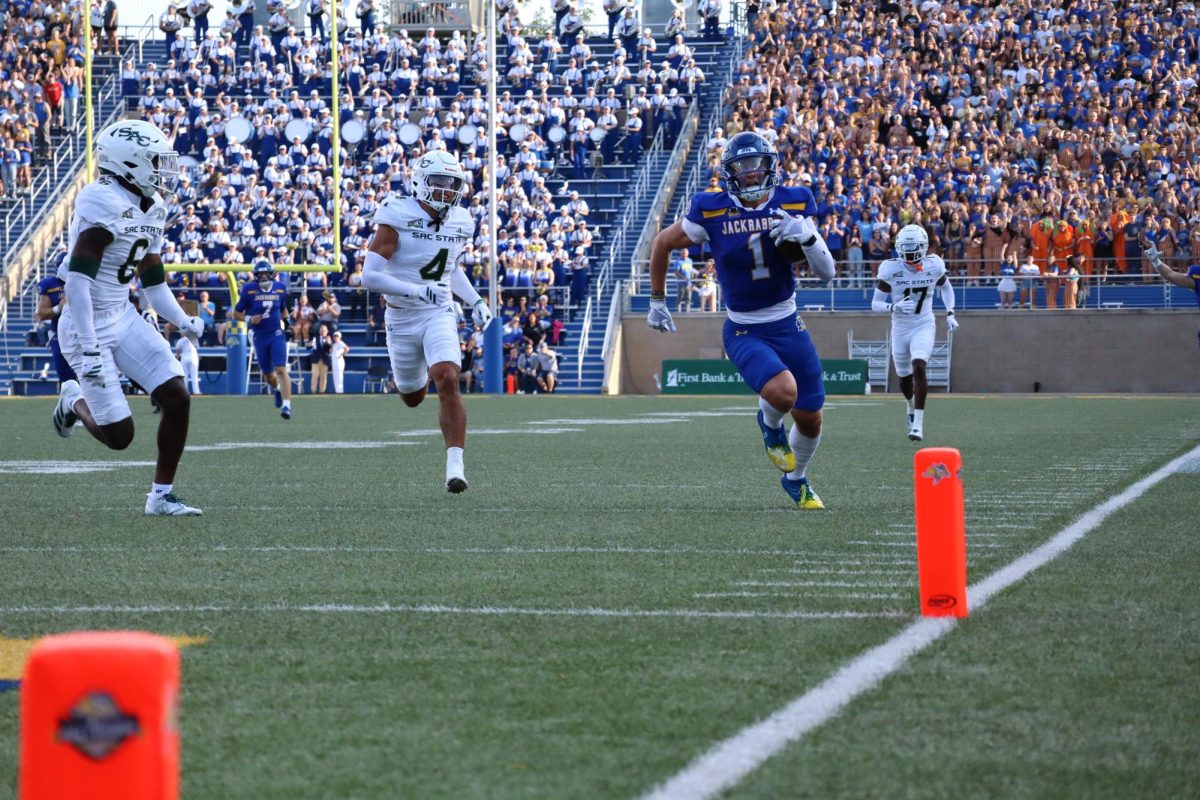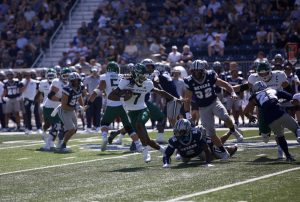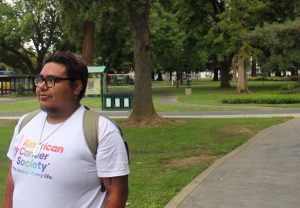Black History Month rolls on at Sac State with ‘Step Afrika!’ dance troupe
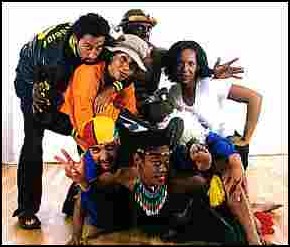
Image: Black History Month rolls on at Sac State with ‘Step Afrika!’ dance troupe:Photo courtesy of Gabriella Porter:
February 5, 2003
If you’ve ever wondered what “gumboots,” Zulu and hip-hop have in common, the University Ballroom is the place to find out when Step Afrika! USA performs its unique blend of history and contemporary dance at Sac State.
Foremost in the company’s repertoire is “stepping,” an explosively energetic art form practiced by members of African-American fraternities and sororities. Along with freestyle and modern house dancing, the company also integrates cultural rhythms such as “gumboots,” a mixture of precision footwork and handclapping created by South African gold miners.
The show is the brainchild of C. Brian Williams, who founded the Washington, D.C.–based troupe in 1996. A graduate of Howard University, Williams had been exposed to stepping as a member of the Beta Chapter of Alpha Phi Alpha Fraternity, Inc. After finishing school, he then spent a year in South Africa and became aware of the cultural roots of modern African-American dance. The experience inspired him to co-create the Step Afrika! International Cultural Festival in Soweto, South Africa. This festival eventually led to the creation of a US-based dance company three years later.
Williams said that the show is a form of language that can be understood worldwide.
“We believe in using dance as a way of breaking barriers between people and laying foundation for dialogue,” he said. “What you see on stage is a result of cultural exchange.”
The company seeks to seperate itself from other ensemble step-based shows, such as “Bring in Da Noise, Bring in Da Funk,” by integrating more heritage from the past.”We focus on the history,” Williams said. “It’s more of a cultural experience than just a dance performance.”
Step Afrika! is still buzzing from last year’s successful tour of 60 college campuses from Maine to Mississippi. Recently, the company performed at the John F. Kennedy Center in Washington, D.C and in December made the annual trip to Soweto for the Step Afrika! International Cultural Festival. The group also conducts workshops and clinics at schools and community centers across the country.


